NSF Grant: Civic Project
Interested in Learning More?
Our National Science Foundation (NSF)-funded CIVIC project shows how we can train community members to work with expert systems in identifying COVID-19 and other disaster-related risks communicated on social media. By replicating and extending our proven approach nationwide, we provide situational awareness for emergency management.
Project Team
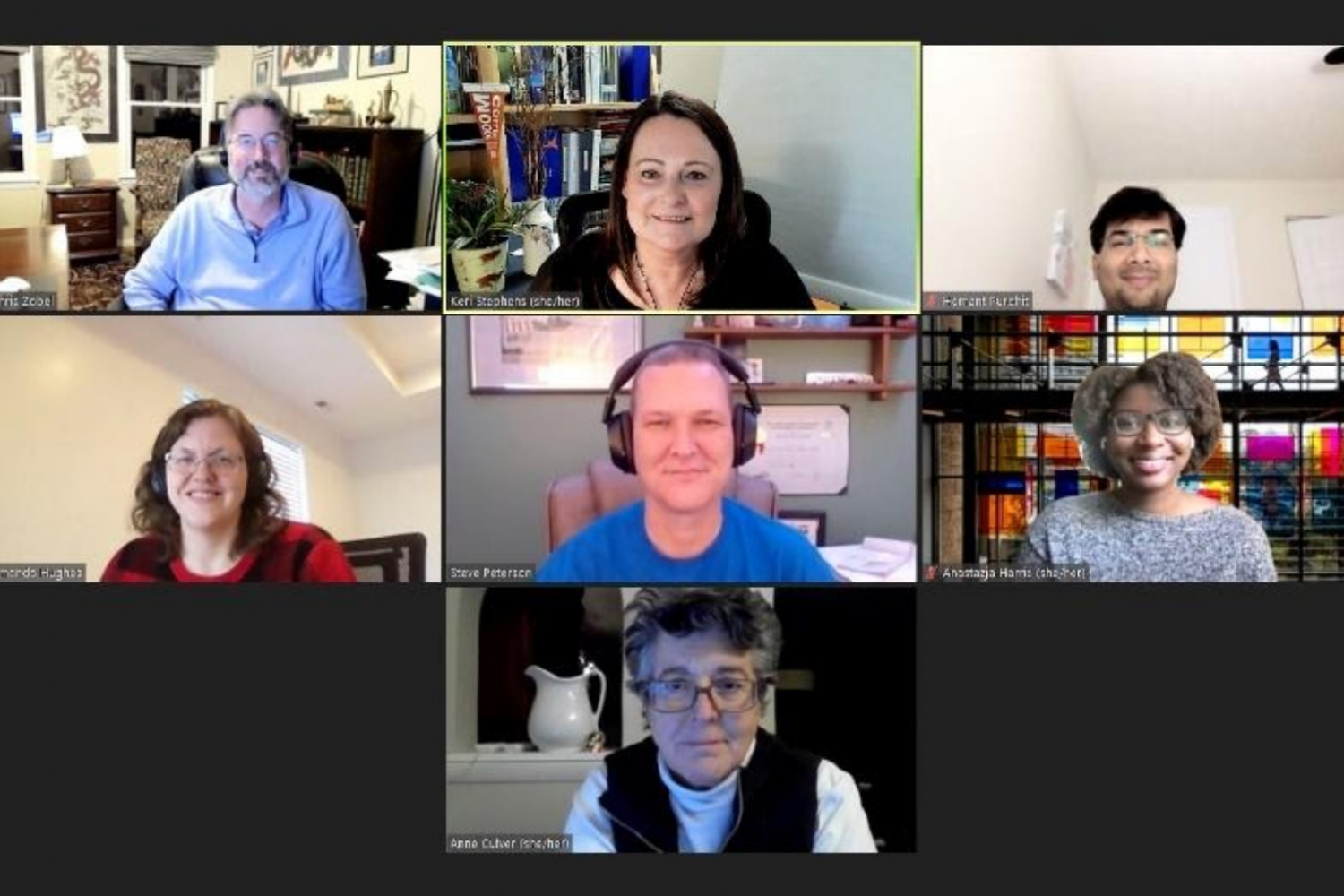
More about our team
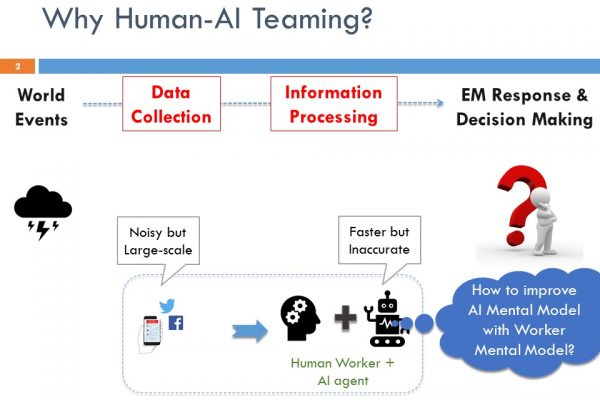
- Our community partners, Anne Culver and Steve Peterson with Montgomery County Community Emergency Response Team (CERT) are an integral part of this project.
- Both Anne & Steve are Past Presidents with the Montgomery County CERT
- Anne is the Founder of the Montgomery County CERT
- Steve has been involved in 52 different virtual activations to date where Montgomery County CERT members have worked, in partnership, with several different organizations to label social media data that can assist emergency managers.
- Check out this video our team made to thank the wonderful volunteers we have had the pleasure to work with
Our science
- Citizen Helper is an expert computer system originally designed with NSF funds. It includes a robust machine learning system and a user interface that has been heavily shaped by emergency managers, including Steve Peterson. Learn more by visiting Hemant Purohit’s Lab website
- https://ist.gmu.edu/~hpurohit/Understanding how volunteers interact with the user interface of Citizen Helper is the focus of Amanda Hughes. She is an expert in Crisis Informatics, understands how people use social media in crises, and studies human-computer interaction.
- Learning more about how to motive volunteers, work with complex technologies in a team environment, and how disasters are occasions to study the human-technology practices are the areas of expertise Keri Stephens brings to the team.
- Pulling all these practices together and demonstrating how they all constitute community resilience is the expertise of Chris Zobel.
- This project integrates disciplines like computer science, human-computer interaction, social science, and disaster operations. We have research questions in each of these areas.
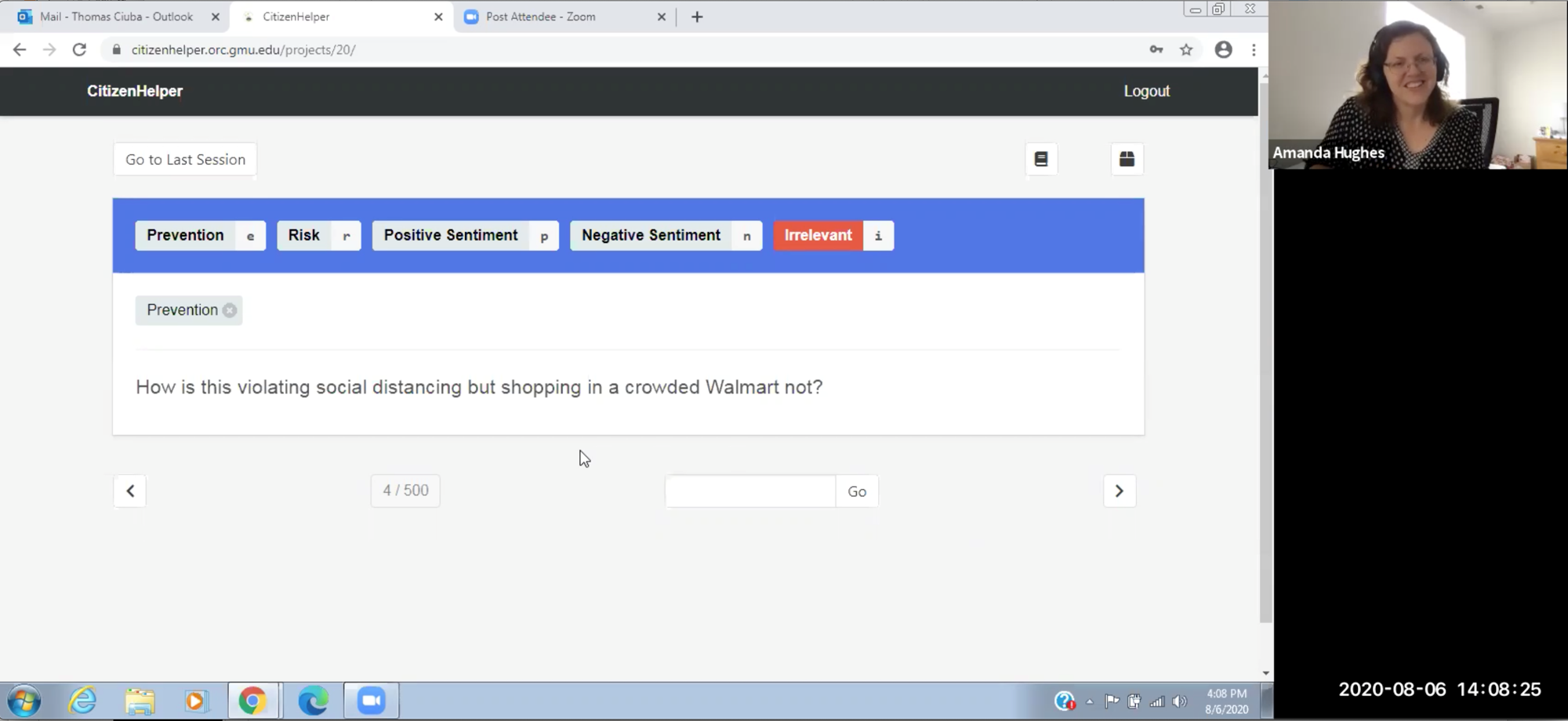
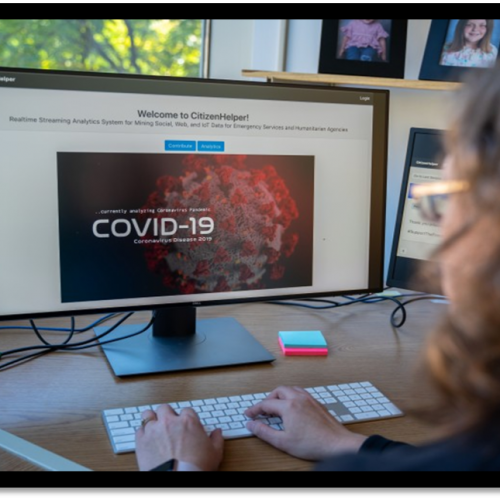
KEY STAKEHOLDERS IN OUR PROJECT
- Emergency Managers: What do they need, and how can we provide them situational awareness so they can act on data?
- CERT volunteers: What do they like about working with the Citizen Helper System (the expert computer systems and artificial intelligence)? How can better motivate and train them as we move beyond our work in the National Capital Region?
- Governmental organizations: What opportunities and barriers do they see being engaged with this project as we expand nationwide?
- NGOs and other volunteer-based organizations: Could we expand beyond CERT? What organizations have volunteers with the skills and interests to be involved in the human-AI teaming initiatives?
Invited Talks related to this project
Invited Talk: ISCRAM Webinar Series. Social Media, COVID-19, & Machine Learning. Steve Peterson, Hemant Purhoit, Amanda Hughes, & Keri Stephens. January, 2021. (Funded by NSF Award# 2029692)
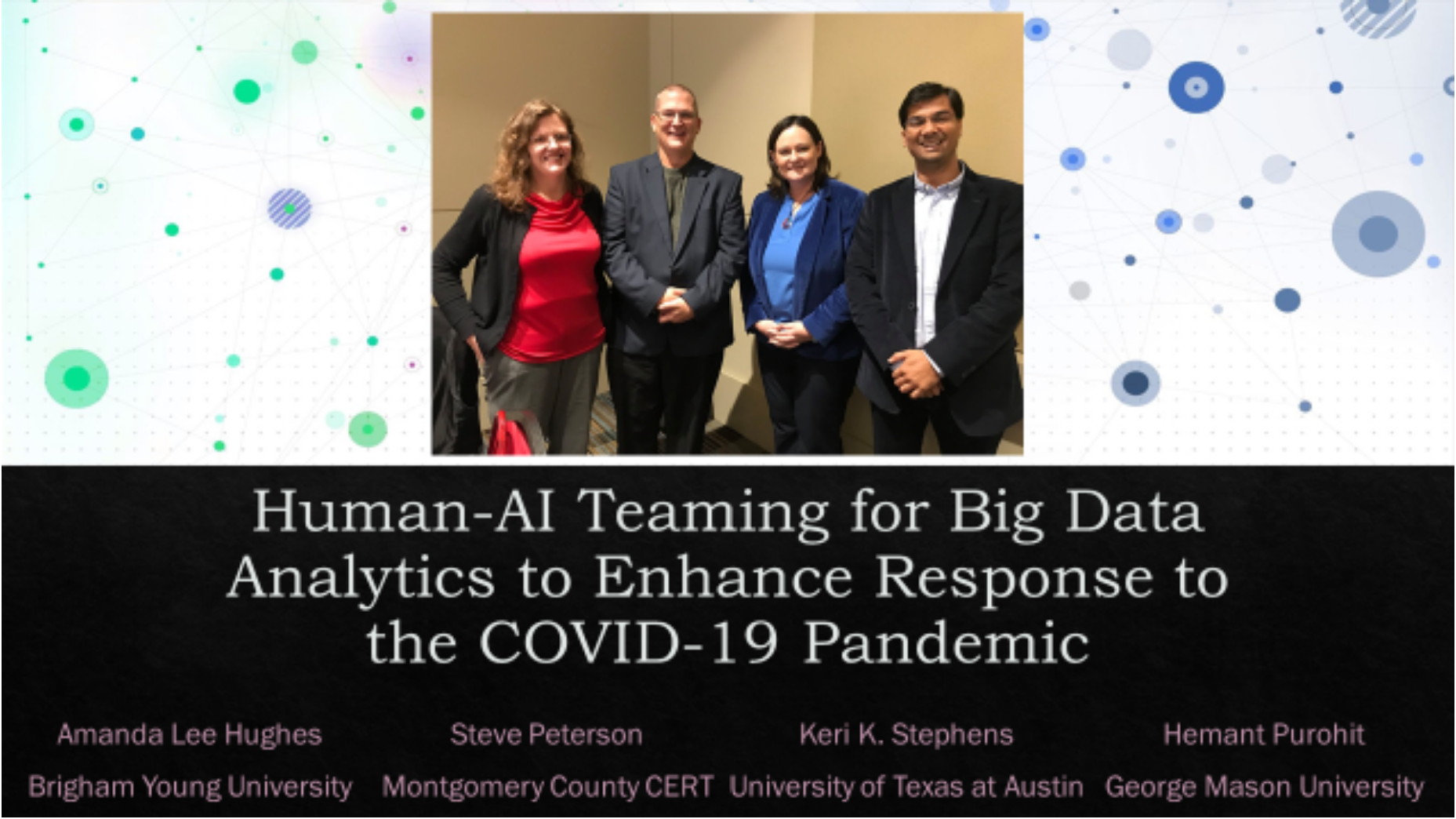
Publications related to this project
Want to learn more about how our team conducted 61 interviews where we also observed the CERT Volunteers using Citizen Helper so we could learn more about human-AI Teaming?
Stephens, K. K., Nader, K., Harris, A. G., Montagnolo, C., Hughes, A. L., Jarvis, S. A., Senarath, Y.,
Purohit, H., (2021). Online-computer-mediated interviews and observations: Overcoming challenges and establishing best practices in a human-AI teaming context (pp. 2896-2905). In T. Bui’s (Ed.). Proceedings of the 54rd Annual Hawaii International Conference on Social Systems, Computer Society Press. http://hdl.handle.net/10125/70967. (funded by NSF Award # 2029692)
Videos produced to describe portions of this project:
Getting Meaningful Data from Mediated Qualitative Research
Online Computer-Mediated Interviews and Observations
This paper is hot off the press, and it was conducted as part of a prior NSF grant, but it really describes how people perform behind-the-scenes volunteer work during a disaster. We call these people Disaster Knowledge Workers because their work is so important!
Smith, W. R., Robertson, B. W., Stephens, K. K., & Murthy, D. (in press). A different type of disaster
response digital volunteer: Looking behind the scenes to reveal coordinating actions of disaster
knowledge workers. Journal of Contingencies and Crisis Management. Advance online
publication.
https://doi.org/10.1111/1468-5973.12352 (funded by NSF Award# 1760453)
To learn more about this paper, read our latest blog post.
Our ISCRAM 2019 paper shares our methodological framework for finding calls for help. https://www.researchgate.net/publication/333521322_When_Official_Systems_Overload_A_Framework_for_Finding_Social_Media_Calls_for_Help_during_Evacuations
Be on the lookout for more publications and talks as we continue our project.